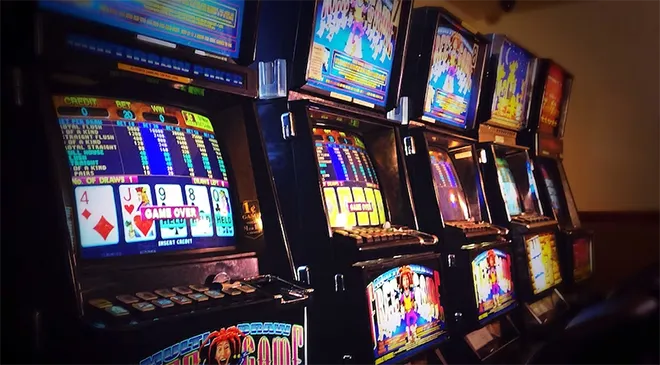 In a press release issued on the news website Scoop, the Department of Internal Affairs (DIA) announced the sentencing of Iosefa Ta’alo Ape from Auckland, who was recently caught stealing class 4 gambling machine grant funds. Mr Ape’s punishment involves six months of home detention, with another six months being designated for post-detention.
In a press release issued on the news website Scoop, the Department of Internal Affairs (DIA) announced the sentencing of Iosefa Ta’alo Ape from Auckland, who was recently caught stealing class 4 gambling machine grant funds. Mr Ape’s punishment involves six months of home detention, with another six months being designated for post-detention.
Under the Gambling Act 2003, non-casino establishments in New Zealand are mandated to distribute money earned from Class 4 pokies in the form of grants. According to Hon. Peter Dunne, who served as the Minister of Internal Affairs between 2014 and 2017, each year sees roughly NZ$260 million in money gained through gambling be distributed for the purpose of community causes.
Mr Ape’s own application involved supposed costs of NZ$75,000 that he wished to be covered by a grant, and, at the time, he was at the helm of the Hoop Star Basketball Academy. However, the said costs were eventually found to have been fabricated, which was in breach of the Crimes Act 1961. In addition to being prohibited from leaving his home for half a year, Mr Ape will also be required to pay the money back.
The DIA’s Director Gambling, Vicki Scott, said that the behaviour exhibited by Mr Ape was “dishonest” and not to be tolerated. She continued, putting an emphasis on the DIA’s dedication to ensuring “the financial benefits to communities from gambling are maximised” and that the grant system as a whole is free from jeopardy. She concluded her statement by stressing that each dollar from class 4 gambling that goes toward the fund is of importance.
Recent Amendments to New Zealand’s Gambling Regulation Have Been Controversial
 As established, the funding grants serve as a way for gambling machines to contribute toward New Zealand’s communities, and the industry, in general, is tightly regulated by the New Zealand Gambling Commission in order to ensure that gambling is beneficial to the New Zealand residents while the damage it can cause in the form of gambling harm is minimised.
As established, the funding grants serve as a way for gambling machines to contribute toward New Zealand’s communities, and the industry, in general, is tightly regulated by the New Zealand Gambling Commission in order to ensure that gambling is beneficial to the New Zealand residents while the damage it can cause in the form of gambling harm is minimised.
Efforts to further improve the country’s gambling landscape with regard to safety were introduced in the form of amendments to the Gambling Act near the end of 2023, but the said measures became a point of contention between representatives of the sector and the government. The Gaming Machine Association of New Zealand (GMANZ), in particular, was especially critical of the changes, both prior to their official coming into effect and after the fact.
Among the biggest factors that became a cause for concern was a rule surrounding the monitoring of gambling clients at land-based establishments, according to which any individuals who partake in gambling must be checked once every 20 minutes. In addition, any person who withdraws more than twice while being the patron of a class 4 gambling business is now considered to be an at-risk client, according to the new rules.
New Zealand is not the only country where new gambling regulations have not received a warm reception. Last week, Racing TV became the latest broadcaster to express disapproval of an upcoming Irish law that will make the airing of gambling ads between 5:30am and 9:00pm illegal. Racecourse Media Group Chief Martin Stevenson even stressed that should the bill pass as is, it would be “unviable for Racing TV to continue broadcasting in Ireland.”
- Author


